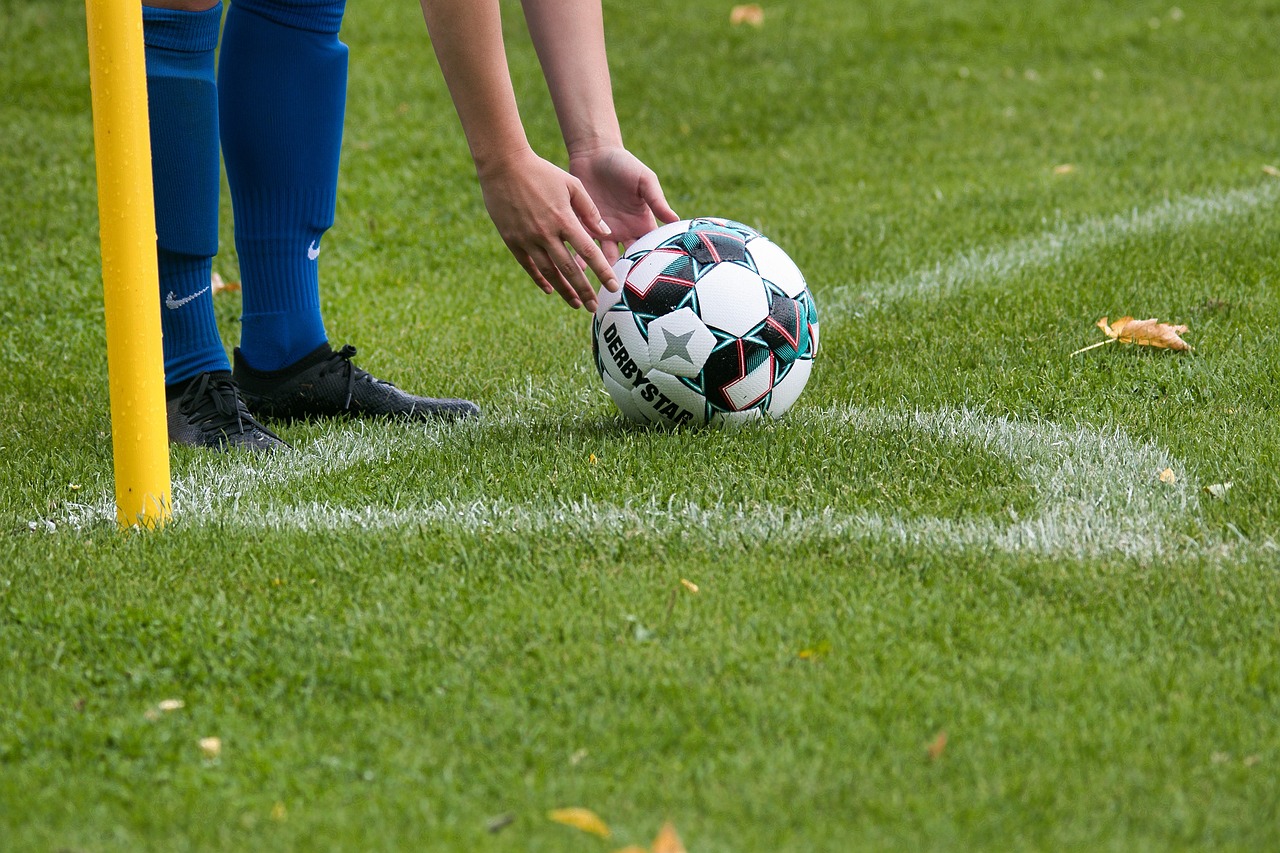Soccer, also known as football in many parts of the world, is a physically demanding sport that requires a combination of endurance, strength, speed, and agility. To perform at their best, soccer players need to fuel their bodies with the right nutrients that support both energy production and muscle strength. Proper nutrition is essential not only for boosting performance on the field but also for promoting muscle recovery and reducing the risk of injury.
In this article, we’ll explore 18 nutrient-rich foods that are particularly beneficial for soccer players, helping them build endurance, maintain strength, and recover effectively after intense training or matches.
1. Bananas
Bananas are an excellent source of carbohydrates, particularly fast-acting sugars that provide an immediate source of energy during soccer matches. They are also rich in potassium, which is vital for maintaining proper muscle function and preventing cramps.
- Carbohydrates are the body’s preferred source of energy during intense activities like soccer, and bananas help replenish glycogen stores quickly.
- Potassium helps regulate fluid balance in the body and supports the electrolyte balance, which is important for preventing fatigue during long periods of exercise.
Bananas make for a quick and easy snack before, during, or after soccer training.
2. Oats
Oats are a slow-digesting carbohydrate that provide sustained energy throughout long matches or training sessions. They are also high in fiber, which helps keep blood sugar levels stable, preventing energy crashes.
- Oats are rich in beta-glucan, a type of fiber that promotes heart health and supports endurance by providing a steady stream of energy over time.
- The B vitamins in oats also help the body convert carbohydrates into usable energy, ensuring soccer players can maintain stamina during games.
Oats are a great breakfast option, especially when paired with protein sources like yogurt or eggs.
3. Sweet Potatoes
Sweet potatoes are packed with complex carbohydrates, which provide long-lasting energy that soccer players need to fuel their performance on the field. They are also a rich source of beta-carotene, vitamin C, and potassium, all of which support muscle function and recovery.
- The complex carbs in sweet potatoes help replenish muscle glycogen stores after intense physical activity, promoting faster recovery and preparing the body for the next session.
- The antioxidants in sweet potatoes, including beta-carotene and vitamin C, help reduce inflammation and support the immune system, which is important for recovery and overall health.
Sweet potatoes can be enjoyed as a side dish, roasted, or added to salads for a nutritious, energy-boosting meal.
4. Quinoa
Quinoa is a complete protein, meaning it contains all nine essential amino acids that the body needs to build and repair muscle tissue. In addition to being high in protein, quinoa is a complex carbohydrate that provides long-lasting energy.
- The protein in quinoa is crucial for muscle recovery and repair after intense soccer training or matches, helping players maintain strength and endurance.
- Quinoa is also rich in fiber, which supports digestion and helps keep energy levels steady throughout the day.
Quinoa is a versatile grain that can be added to salads, used as a side dish, or mixed into bowls for a nutrient-dense meal.
5. Chicken Breast
Chicken breast is an excellent source of lean protein, which is essential for muscle repair and recovery. It is also rich in B vitamins, particularly niacin (B3) and B6, which help convert food into energy.
- Protein helps repair muscle fibers damaged during training and competition, making it vital for maintaining strength and endurance in soccer players.
- The B vitamins in chicken breast play a key role in energy metabolism, ensuring that carbohydrates and fats are efficiently converted into usable energy.
Grilled or baked chicken breast can be incorporated into meals to help soccer players meet their protein needs for muscle recovery and strength.
6. Eggs
Eggs are a complete protein, providing all of the essential amino acids that the body needs for muscle growth and repair. They also contain choline, a nutrient that supports brain function and mental focus, which is crucial for soccer players during matches.
- The high-quality protein in eggs helps soccer players build and maintain lean muscle mass, which is essential for strength and endurance on the field.
- Eggs are also a good source of healthy fats, including omega-3 fatty acids, which support joint health and reduce inflammation, promoting faster recovery.
Whether scrambled, boiled, or incorporated into meals, eggs are a versatile and nutrient-dense option for soccer players.
7. Salmon
Salmon is rich in omega-3 fatty acids, which have powerful anti-inflammatory properties that help reduce muscle soreness and promote faster recovery. It is also a high-quality source of protein, which is essential for maintaining strength and muscle mass.
- The omega-3s in salmon help reduce joint inflammation and improve blood flow to the muscles, enhancing endurance and recovery after intense activity.
- Protein from salmon supports muscle repair and growth, helping soccer players recover faster between training sessions and matches.
Grilled or baked salmon is a great option for a post-training meal that promotes muscle recovery and reduces inflammation.
8. Brown Rice
Brown rice is a whole grain that provides complex carbohydrates, which are essential for maintaining energy levels during long soccer matches or training sessions.
- The fiber in brown rice helps stabilize blood sugar levels, preventing energy crashes and keeping players fueled throughout their performance.
- Brown rice is also rich in magnesium, which plays a role in muscle function and helps prevent muscle cramps and fatigue.
Adding brown rice to meals provides soccer players with a steady source of energy that supports both endurance and strength.
9. Greek Yogurt
Greek yogurt is packed with protein, particularly casein, a slow-digesting protein that helps repair muscles over time. It is also rich in probiotics, which support gut health and aid in nutrient absorption.
- The high protein content in Greek yogurt makes it ideal for muscle recovery after intense soccer training or matches.
- Probiotics help maintain a healthy gut, which is essential for optimal digestion and nutrient absorption, ensuring that players get the most out of their diets.
Greek yogurt can be enjoyed as a snack or combined with fruits and nuts for a nutritious post-workout recovery meal.
10. Almonds
Almonds are a nutrient-dense snack that provides healthy fats, protein, and vitamin E, an antioxidant that helps reduce oxidative stress in the body.
- The healthy fats in almonds provide a sustainable source of energy for long training sessions, while the protein content supports muscle recovery and growth.
- Vitamin E helps protect muscles from oxidative damage caused by intense physical activity, promoting faster recovery and reducing soreness.
Almonds can be enjoyed as a pre- or post-training snack, providing a quick source of energy and muscle recovery support.
11. Spinach
Spinach is a nutrient-dense leafy green rich in iron, magnesium, and vitamin C. These nutrients are essential for maintaining energy levels, supporting muscle function, and promoting recovery.
- Iron helps transport oxygen to muscles, ensuring they have the fuel needed for endurance during long soccer matches.
- Magnesium supports muscle function and helps prevent cramps, while vitamin C helps reduce inflammation and support immune health.
Adding spinach to salads, smoothies, or meals provides soccer players with a nutrient boost that supports endurance and overall health.
12. Beets
Beets are rich in nitrates, which have been shown to improve blood flow and oxygen delivery to the muscles. This can enhance endurance and reduce fatigue during high-intensity sports like soccer.
- The nitrates in beets help increase nitric oxide levels in the body, which improves vascular function and allows more oxygen to reach the muscles during exercise.
- Beets also contain antioxidants that reduce inflammation and promote recovery after intense activity.
Drinking beet juice or adding roasted beets to meals can provide a natural boost to endurance and strength for soccer players.
13. Chia Seeds
Chia seeds are a rich source of omega-3 fatty acids, fiber, and protein, all of which contribute to improved endurance and muscle recovery.
- The omega-3s in chia seeds help reduce inflammation and improve joint health, which is important for preventing injuries during soccer matches.
- Chia seeds provide a balance of carbohydrates and protein, making them an excellent source of sustained energy and muscle support.
Chia seeds can be added to smoothies, yogurt, or oatmeal for an easy way to boost nutrient intake and support soccer performance.
14. Avocados
Avocados are an excellent source of healthy fats, particularly monounsaturated fats, which provide long-lasting energy and support heart health.
- The fats in avocados help regulate blood sugar levels, ensuring a steady supply of energy during soccer games and training.
- Avocados also contain potassium, which supports muscle function and helps prevent cramps.
Adding avocado to salads, sandwiches, or smoothies provides a nutrient-dense option that promotes endurance and strength.
15. Lentils
Lentils are a great plant-based source of protein, fiber, and iron, all of which contribute to muscle recovery and sustained energy.
- The protein in lentils helps repair muscle tissues after intense physical activity, while the fiber provides a slow release of energy.
- Iron supports oxygen delivery to muscles, which is essential for maintaining endurance during long matches.
Lentils can be added to soups, stews, or salads for a nutrient-packed meal that supports soccer performance.
16. Oranges
Oranges are rich in vitamin C, an antioxidant that helps reduce muscle inflammation and promotes recovery after physical activity.
- Vitamin C supports the production of collagen, which is important for maintaining healthy joints and connective tissues, reducing the risk of injuries.
- Oranges are also a good source of carbohydrates, providing a quick energy boost before or during soccer matches.
Eating oranges as a snack or drinking freshly squeezed orange juice can help soccer players recover more quickly after games.
17. Tuna
Tuna is a lean source of protein and omega-3 fatty acids, both of which support muscle recovery and reduce inflammation.
- The protein in tuna helps repair muscle tissues, while the omega-3s reduce soreness and improve blood flow to muscles.
- Tuna is also rich in B vitamins, which help convert food into energy, supporting endurance during long soccer matches.
Tuna can be enjoyed in salads, sandwiches, or as part of a post-training meal to boost muscle recovery and promote endurance.
18. Cottage Cheese
Cottage cheese is a high-protein dairy product that provides a significant amount of casein, a slow-digesting protein that supports muscle recovery.
- The protein in cottage cheese helps repair muscles over time, making it an ideal snack before bed to aid in overnight muscle recovery.
- Cottage cheese is also rich in calcium, which supports bone strength and helps prevent injuries.
Including cottage cheese in meals or snacks provides soccer players with a nutrient-dense option that supports both muscle recovery and strength.
Conclusion
Soccer players require a well-balanced diet that provides sustained energy, supports muscle recovery, and promotes endurance. By incorporating these 18 nutrient-rich foods into their diets, players can improve their performance on the field, reduce the risk of injury, and enhance their overall health. From high-protein options like chicken and salmon to energy-boosting foods like oats and bananas, these foods provide the essential nutrients needed for soccer players to excel in their sport.




